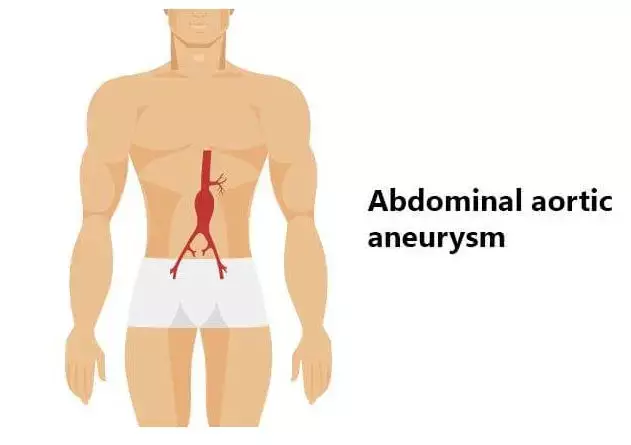- Home
- Medical news & Guidelines
- Anesthesiology
- Cardiology and CTVS
- Critical Care
- Dentistry
- Dermatology
- Diabetes and Endocrinology
- ENT
- Gastroenterology
- Medicine
- Nephrology
- Neurology
- Obstretics-Gynaecology
- Oncology
- Ophthalmology
- Orthopaedics
- Pediatrics-Neonatology
- Psychiatry
- Pulmonology
- Radiology
- Surgery
- Urology
- Laboratory Medicine
- Diet
- Nursing
- Paramedical
- Physiotherapy
- Health news
- Fact Check
- Bone Health Fact Check
- Brain Health Fact Check
- Cancer Related Fact Check
- Child Care Fact Check
- Dental and oral health fact check
- Diabetes and metabolic health fact check
- Diet and Nutrition Fact Check
- Eye and ENT Care Fact Check
- Fitness fact check
- Gut health fact check
- Heart health fact check
- Kidney health fact check
- Medical education fact check
- Men's health fact check
- Respiratory fact check
- Skin and hair care fact check
- Vaccine and Immunization fact check
- Women's health fact check
- AYUSH
- State News
- Andaman and Nicobar Islands
- Andhra Pradesh
- Arunachal Pradesh
- Assam
- Bihar
- Chandigarh
- Chattisgarh
- Dadra and Nagar Haveli
- Daman and Diu
- Delhi
- Goa
- Gujarat
- Haryana
- Himachal Pradesh
- Jammu & Kashmir
- Jharkhand
- Karnataka
- Kerala
- Ladakh
- Lakshadweep
- Madhya Pradesh
- Maharashtra
- Manipur
- Meghalaya
- Mizoram
- Nagaland
- Odisha
- Puducherry
- Punjab
- Rajasthan
- Sikkim
- Tamil Nadu
- Telangana
- Tripura
- Uttar Pradesh
- Uttrakhand
- West Bengal
- Medical Education
- Industry
Antihypertensives, antibiotics don't restrict abdominal aortic aneurysm complications: Study

According to a recent meta-analysis ,neither blood pressure-lowering medications or antibiotics limit growth or clinically relevant events in people with AAAs.These findings have been published in Heart (British Cardiac Society).
An arterial aneurysm is defined as a focal dilation of a blood vessel with respect to the original artery. The risk of abdominal aortic aneurysms (AAAs) increases dramatically in the presence of the following factors: age older than 60 years, smoking, hypertension and Caucasian ethnicity.
There is currently no medical treatment proven to limit abdominal aortic aneurysm (AAA) progression. The aim of this systematic review and meta-analysis was to pool data from previous randomised controlled trials assessing the efficacy of blood pressure-lowering and antibiotic medications in limiting AAA growth and AAA-related events, that is, rupture or repair.
As for the study design, a systematic literature search was performed to identify randomised controlled trials that examined the efficacy of blood pressure-lowering medications or antibiotics in reducing AAA growth and AAA-related events. AAA growth (mm/year) was measured by ultrasound or computed tomography imaging.
This systematic review and meta-analysis used data from 10 randomized trials (2045 participants) to examine whether blood pressure–lowering medications or antibiotics may help to limit the progression of abdominal aortic aneurysm (AAA) or events related to AAA.
Data analysis revealed the following facts.
- Over follow-up periods ranging from 18 to 63 months, no effects of blood pressure–lowering medications or antibiotics on AAA growth or AAA-related events were detected.
- Subanalyses examining tetracycline and macrolide antibiotics separately also found no effects.
- Neither blood pressure-lowering medications (mean growth±SD 2.0±2.4 vs 2.3±2.7 mm/year; standardised mean difference (SMD) -0.07, 95% CI -0.19 to 0.06; p=0.288) or antibiotics (mean growth±SD 2.6±2.1 vs 2.6±2.5 mm/year; SMD -0.11, 95% CI -0.38 to 0.16; p=0.418) reduced AAA growth or AAA-related events (blood pressure-lowering medications: 92 vs 95 events; risk ratio (RR) 0.86, 95% CI 0.66 to 1.11; p=0.244; and antibiotics: 69 vs 73 events; RR 0.93, 95% CI 0.69 to 1.25; p=0.614).
- The subanalysis of antibiotics showed similar results.
"Although blood pressure–lowering medications are still of value to reduce cardiovascular risk in individuals with AAAs, these findings suggest that they do not help to reduce the risk of AAA growth or of AAA-related events. This suggests a need for further research to attempt to find medical treatments that may help these patients." concluded the team.
For the full article, follow the link: Effect of Blood Pressure Lowering Drugs and Antibiotics on Abdominal Aortic Aneurysm Growth: A Systematic Review and Meta-Analysis
Heart 2020 Nov 16;[EPub Ahead of Print], J Golledge, TP Singh
Dr Satabdi Saha (BDS, MDS) is a practicing pediatric dentist with a keen interest in new medical researches and updates. She has completed her BDS from North Bengal Dental College ,Darjeeling. Then she went on to secure an ALL INDIA NEET PG rank and completed her MDS from the first dental college in the country – Dr R. Ahmed Dental College and Hospital. She is currently attached to The Marwari Relief Society Hospital as a consultant along with private practice of 2 years. She has published scientific papers in national and international journals. Her strong passion of sharing knowledge with the medical fraternity has motivated her to be a part of Medical Dialogues.
Dr Kamal Kant Kohli-MBBS, DTCD- a chest specialist with more than 30 years of practice and a flair for writing clinical articles, Dr Kamal Kant Kohli joined Medical Dialogues as a Chief Editor of Medical News. Besides writing articles, as an editor, he proofreads and verifies all the medical content published on Medical Dialogues including those coming from journals, studies,medical conferences,guidelines etc. Email: drkohli@medicaldialogues.in. Contact no. 011-43720751


